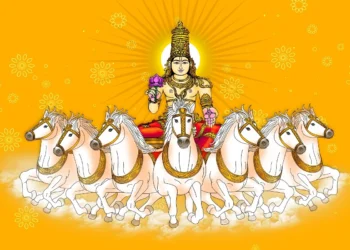TEXT 19
ihaiva tair jitaḥ sargo
yeṣāṁ sāmye sthitaṁ manaḥ
nirdoṣaṁ hi samaṁ brahma
tasmād brahmaṇi te sthitāḥ
SYNONYMS
iha—in this life; eva—certainly; taiḥ—by them; jitaḥ—conquered; sargaḥ—birth and death; yeṣām—whose; sāmye—in equanimity; sthitam—situated; manaḥ—mind; nirdoṣam—flawless; hi—certainly; samam—in equanimity; brahma—like the Supreme; tasmāt—therefore; brahmaṇi—in the Supreme; te—they; sthitāḥ—are situated.
TRANSLATION
Those whose minds are established in sameness and equanimity have already conquered the conditions of birth and death. They are flawless like Brahman, and thus they are already situated in Brahman.
PURPORT
Equanimity of mind, as mentioned above, is the sign of self-realization. Those who have actually attained to such a stage should be considered to have conquered material conditions, specifically birth and death. As long as one identifies with this body, he is considered a conditioned soul, but as soon as he is elevated to the stage of equanimity through realization of self, he is liberated from conditional life. In other words, he is no longer subject to take birth in the material world but can enter into the spiritual sky after his death. The Lord is flawless because He is without attraction or hatred. Similarly, when a living entity is without attraction or hatred, he also becomes flawless and eligible to enter into the spiritual sky. Such persons are to be considered already liberated, and their symptoms are described below.
TEXT 20
na prahṛṣyet priyaṁ prāpya
nodvijet prāpya cāpriyam
sthira-buddhir asammūḍho
brahma-vid brahmaṇi sthitaḥ
SYNONYMS
na—never; prahṛṣyet—rejoices; priyam—the pleasant; prāpya—achieving; na—does not; udvijet—become agitated; prāpya—obtaining; ca—also; apriyam—the unpleasant; sthira-buddhiḥ—self-intelligent; asammūḍhaḥ—unbewildered; brahma-vit—one who knows the Supreme perfectly; brahmaṇi—in the transcendence; sthitaḥ—situated.
TRANSLATION
A person who neither rejoices upon achieving something pleasant nor laments upon obtaining something unpleasant, who is self-intelligent, who is unbewildered, and who knows the science of God, is already situated in transcendence.
PURPORT
The symptoms of the self-realized person are given herein. The first symptom is that he is not illusioned by the false identification of the body with his true self. He knows perfectly well that he is not this body but is the fragmental portion of the Supreme Personality of Godhead. He is therefore not joyful in achieving something, nor does he lament in losing anything which is related to his body. This steadiness of mind is called sthira-buddhi, or self-intelligence. He is therefore never bewildered by mistaking the gross body for the soul, nor does he accept the body as permanent and disregard the existence of the soul. This knowledge elevates him to the station of knowing the complete science of the Absolute Truth, namely Brahman, Paramātmā and Bhagavān. He thus knows his constitutional position perfectly well, without falsely trying to become one with the Supreme in all respects. This is called Brahman realization, or self-realization. Such steady consciousness is called Kṛṣṇa consciousness.



















